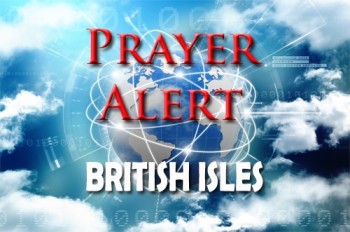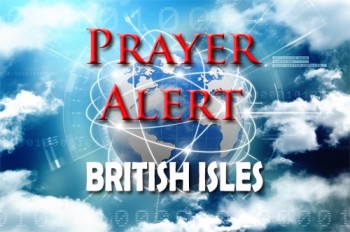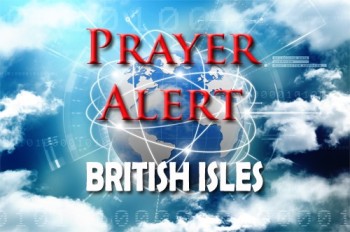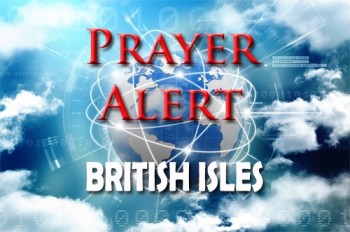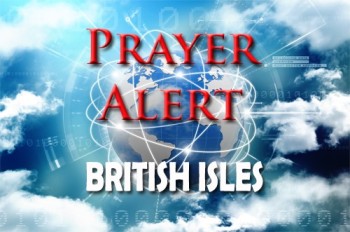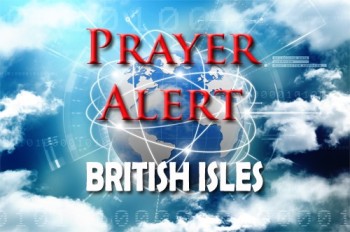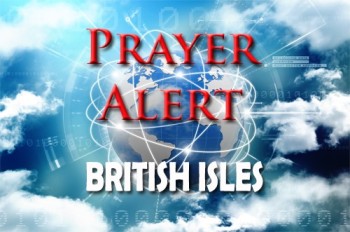Displaying items by tag: United Kingdom
UK / Greece: ongoing row over Elgin Marbles
The ‘Elgin Marbles’ are ancient Greek sculptures taken from the Parthenon in Athens and currently housed in the British Museum. The British government argues that the marbles are a part of world heritage, while Greece has called for their return to their homeland. The argument has flared up with the visit of the Greek prime minister to the UK. When he raised the issue in a TV interview, Rishi Sunak cancelled their scheduled meeting, claiming that he had reneged on his promise not to campaign publicly about their return. The Greek foreign minister, at a NATO meeting, has said their claim is based on ‘history’ and ‘justice’. This issue highlights the broader question of repatriating cultural artefacts taken during colonial times.
Give thanks for the life and ministry of David Pytches
On 21 November David Pytches, co-founder of New Wine, died after a sustained period of illness. David and his wife Mary started New Wine in 1989, seeking to help churches experience renewal in the power of the Spirit. Their ministry has touched many lives over the years. John and Anne Coles, who led New Wine for many years after David and Mary, have said: 'David entitled his memoirs “Living on the Edge”, and we thank God for the way in which he lived like that and showed us and countless others how to do so also. He humbly, lovingly, and courageously pioneered aspects of church life and mission in the power of the Spirit, which not only changed his own church and parish but also became models for hundreds of church leaders and churches around the world. This included his pioneering of New Wine as both a summer gathering inspiring thousands of church members and a network of church leaders for mutual encouragement in ministry. His love for Jesus and the Bible, his commitment to personal holiness, his persistence in prayer, his personal prophecies, and his willingness to give away everything with which God blessed him were an inspiration to us personally, and we will miss his role in our lives as a true “Father in God”.’ Read the full article in the link below.
Autumn Statement: NI cut but tax burden still rises
In his Autumn Statement on 22 November, Chancellor Jeremy Hunt announced a significant cut in National Insurance from January, from 12% to 10%. However, due to previous tax changes, many workers might not see substantial benefits. He also raised the state pension by 8.5% and universal credit by 6.7%. Hunt claimed the Government had stabilised the economy, allowing for tax cuts aimed at boosting growth ahead of the next year's general election. Labour criticised the NI cut as insufficient compared to previous tax increases by the Conservative government. Hunt also made a tax break for business investments in new equipment permanent, touted as the 'biggest business tax cut in modern history.' Despite these cuts, the overall tax burden is set to reach a 70-year high. The Office for Budget Responsibility (OBR) revised growth forecasts downwards and projected a delay in the return to pre-pandemic living standards until 2027/28, citing prolonged inflation and higher interest rates. The NI reduction, seen as a significant move, led to speculation about an early general election.
Chancellor announces back to work plan for disabled people
On 22 November Jeremy Hunt unveiled a new Back to Work Plan, focusing on helping disabled individuals, those with long-term health conditions, and the long-term unemployed. The plan enhances four different support programmes, and also the WorkWell service, introduced in the 2023 Spring Budget, aims to assist nearly 60,000 long-term sick or disabled people. However, the plan includes stricter DWP sanctions for those able to work but not engaging with Jobcentre services or refusing work. Failure to engage could lead to the closure of their benefit claims. While the Chancellor highlights a balance of support and consequences, Disability Rights UK (DR UK) criticises the approach, arguing that employment barriers for disabled individuals lie in societal issues and lack of employer support. It stresses the absence of evidence supporting the effectiveness of sanctions and emphasises the need for support and adjustments for the employable while protecting those who cannot work from sanctions. DR UK advocates for investment in the benefits system, fairer structures, and prioritising the wellbeing of disabled and long-term sick individuals.
£5 million to fight threat of drug-resistant infections
The Government has allocated £5 million in seed funding to the Fleming Centre, a new initiative led by Imperial College London, to combat antimicrobial resistance (AMR). This funding forms part of a broader investment to strengthen the UK's life sciences sector. Set to open in 2028 in the hospital where Sir Alexander Fleming discovered the first antibiotic, the Fleming Centre aims to address the global challenge of AMR, which causes over one million deaths annually. AMR occurs when microorganisms develop resistance to treatments like antibiotics, posing a significant public health threat. The centre is committed to placing society at the forefront of solving AMR. Jeremy Hunt emphasised its role in inspiring future world-changing innovations, and Professor Lord Darzi highlighted the importance of this funding in developing the centre and addressing this urgent challenge. See
Grieving community turns to church for solace after death of four teens
In Shrewsbury, the community is mourning the loss of four teenagers (all pupils at the same school) who tragically died during a camping trip in north Wales. They were found in a car off the road near Tremadog, Gwynedd, after being reported missing two days earlier. The news of their deaths has left the town in a state of shock, with many seeking comfort at the local Oxon Parish Church. Rev Charlotte Gompertz, vicar of the church and familiar with three of the boys' families, has opened the church for prayer and reflection. She described the community's devastation, noting the constant influx of people lighting candles and seeking quiet reflection. The church is providing a space for lamentation and questioning in these difficult times. One mother expressed her profound grief, calling it a 'nightmare’. Rev Charlotte acknowledged the challenge of finding words to comfort the bereaved families, emphasising prayer and the church's role in supporting the community's grief. A police investigation into the deaths is under way.
Ofsted: 'contract' between parents and teachers is broken
England's education watchdog, Ofsted, has warned of a significant deterioration in the 'social contract' between families and schools, a situation where parents ensure their children attend school regularly and respect school policies. In her final report, Ofsted's chief inspector, Amanda Spielman, highlighted issues including lower attendance, poor behaviour, and increased friction between parents and schools. She cited a worrying shift in attitudes since the pandemic, with some parents challenging school policies more frequently. Government data show that over a fifth of pupils in England were persistently absent in the 2022/23 academic year, a notable increase from pre-pandemic levels. This trend is contributing to declining educational progress and outcomes. Additionally, schools are experiencing more disruptive behaviour, particularly low-level disruptions like backtalk and misuse of social media in class. Restoring the traditional relationship between schools and families is crucial but is expected to take years.
Net migration reaches new record in 2022
The UK experienced a record net migration increase in 2022, with figures revised to 745,000 for the year ending in December, up from a previous estimate of 606,000. This surge is partly attributed to an influx of overseas professionals in sectors like the NHS and care homes. Labour criticised the government's handling of immigration, pointing to the high number of asylum seekers in hotels and a significant increase in visas issued to skilled workers. Asylum seeker figures remained stable, with 76,000 applications and 56,042 people in hotel accommodations. There was a notable decrease in small boat arrivals, especially among Albanians, though the reasons for these fluctuations remain unclear. Enver Solomon from the Refugee Council emphasised the genuine need for protection among asylum seekers and urged against the Rwanda deportation plan, advocating instead for community integration and support for refugees. In a new development, immigration minister Robert Jenrick has put forward to No 10 proposals aimed at reducing the level of immigration: see
Scotland: new guidelines on pre-death grief for dementia patients and families
Marion Ritchie's life was altered for ever when her husband Dave was diagnosed with dementia at 65. A former Navy pilot, his unrelenting decline over nine years turned their lives into a nightmare. Marion and her daughters were left to cope with the emotional toll of Dave's transformation and grieving for lost futures. In Scotland, about 90,000 people live with dementia, experiencing similar challenges. Despite the need for emotional support, healthcare services offered little assistance. Recognising this gap, Healthcare Improvement Scotland has introduced new guidelines for healthcare professionals, focusing on 'pre-death grief' in dementia patients and their families. These guidelines, the first in nearly two decades, aim to address such emotional impacts, including better training for healthcare staff. Marion welcomes these guidelines, hoping they provide accessible support and information for caregivers facing similar struggles.
Rishi Sunak vows emergency legislation after Rwanda ruling
Rishi Sunak has pledged to enact emergency legislation and forge a new treaty with Rwanda to ensure the continuation of his key asylum policy, despite the Supreme Court's ruling against it. The plan had been to deport illegal asylum seekers to Rwanda, but the court expressed concerns that they might face the risk of being returned to their countries of origin, violating international law. Sunak now plans to convert the Rwanda agreement into a treaty to guarantee that relocated asylum seekers remain there. Controversially, he also wants to designate Rwanda as 'safe,' which would not be challengeable in UK courts. However, this legislation would not supersede the European Court of Human Rights, which could still block the flights. The PM’s stance raises significant questions about the UK's adherence to human rights laws.


